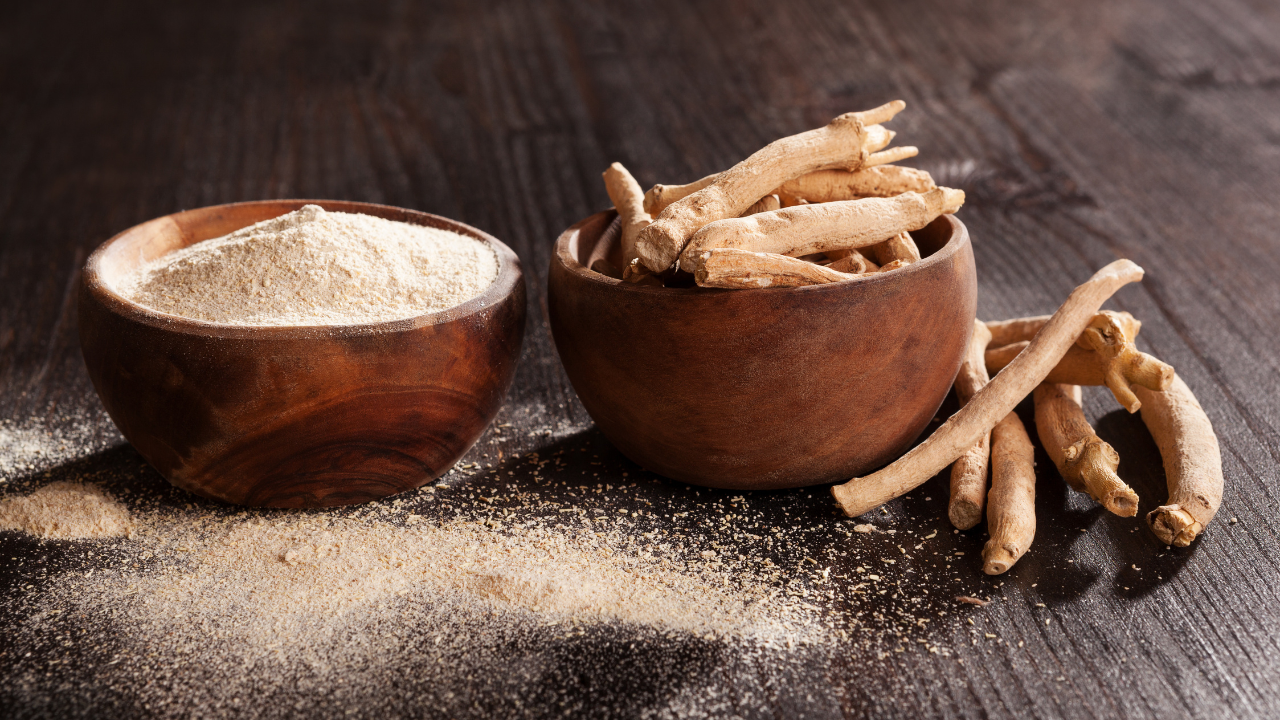
Ashwagandha: The Science Behind The Magic
"The magic pill! A magic potion! It works like a charm! Ashwagandha has magical properties! A magical herb!" This is how most people describe ashwagandha. They all swear that it works all kinds of magic to their being.
But is it really magic or is it science? Or better yet, is there some science behind the magic? Let's dig in.
What Is Ashwagandha?
Did you know that the Sanskrit term for ashwagandha is "horse smell"? The word 'ashwa' means horse and 'gandha' smell, so not something that makes your mouth water. Also, the taste is strong and slightly bitter. But the name is also a reference to the herb's tremendous healing potential.
The ashwagandha plant is primarily found in South Asia, Africa, and the Mediterranean region, where it can grow up to 1 to 2 meters high. Ashwagandha supplements are mostly made from the leaves and root of the plant.
Ashwagandha is derived from an evergreen plant that is commonly collected in India, as well as in some regions of the Middle East and Africa. It has been used for thousands of years in Indian medicine to cure a wide range of conditions, including rheumatism, emaciation, debility from old age, and sleeplessness, as well as to boost sex drive.
The herb Withania somnifera has fascinating active components that have a variety of uses. The use of ashwagandha as an adaptogen is its most well-known use. The Latin word "adaptare," which means "to adapt," is where the word "adaptogen" originates.
Withanolides can be found in isolated form in ashwagandha. These are the ashwagandha root's primary medicinal components. According to preclinical research, these ashwagandha root active ingredients are particularly effective at preventing the buildup of amyloid in brain cells. Amyloid buildup in the brain can have an impact on the health system of the nerve. The neurotransmitters acetylcholine and GABA are also stimulated by ashwagandha and healing plants.
Benefits of Ashwagandha
Ashwagandha is one of the few herbs with purposes that have been scientifically demonstrated, both psychologically and physically, but there is still much research to be done on its advantages:
- Builds stress resilience. Ashwagandha possesses adaptogenic properties and has a substance called adaptogen that adapts to your body's requirements. When you are, for instance, overstretched, overworked and pushed too hard, an adaptogen can help you become more grounded.
- Improves sleep. Ashwagandha root extract has been shown in a recent study to help control insomnia by promoting bodily relaxation and enhancing sleep quality. Ashwagandha's adaptogenic properties can help you relax and unwind to your fullest potential. Ashwagandha may reduce cortisol levels. In addition, consuming 600 mg of ashwagandha daily for 12 weeks dramatically increased the quality of sleep, according to a study involving 50 adults. It was also evident that the subjects were more alert when they first got out of bed than the control group.
- Supports cardiovascular health. According to studies, ashwagandha can increaseVO2max levels, the maximum quantity of oxygen a person can inhale when exercising. It is claimed to help the body both emotionally and physically and reduce the symptoms of specific issues. Research has also revealed an increase in athletes' VO2max as well as in strength athletes' muscular mass.
- Increases mental focus. In addition to the aforementioned benefits, ashwagandha is also thought to support mental equilibrium, protect healthy cells and tissues from free radical damage, and have a good impact on the heart and blood vessels. Ashwagandha may also support inflammation and help manage blood sugar, according to further studies.
Science Facts on Ashwagandha
Ashwagandha for Vitality. Eight weeks of ashwagandha extract or a placebo were administered to overweight, 40- to 70-year-old men who had minor fatigue.
Ashwagandha for Anxiety. Five trials found that using ashwagandha as a supplement improved anxiety or stress scale results more (significantly in most cases) than using a placebo.
Ashwagandha for Sleep. Ashwagandha root extract can enhance sleep quality and assist in managing insomnia, according to the study. Regardless of their health status or age, all trial participants tolerated Ashwagandha root extract well.
Ashwagandha for Mood. Throughout a 30-day period, daily Ashwagandha (Noogandha) supplementation increases the body's ability to cope with stress in terms of its physiological, cognitive, and psychological effects.
Pepper for Effect Increase. Between 30% and 200% more medicines have a higher bioavailability because to piperine. It nearly tenfold enhances the bioavailability of curcumin, according to later research.
Caution:
Ashwagandha's effects need to be studied more, but the studies that have already been conducted suggest that it "can improve sleep and reduce stress, anxiety, and depression."
It is not advised for usage by pregnant women since ashwagandha may cause liver damage and digestive tract inflammation.
Ashwagandha may increase testosterone levels, according to the Memorial Sloan Kettering Cancer Center, thus those with hormone-sensitive prostate cancer should avoid taking it.
It's important to speak with your doctor about taking ashwagandha before really incorporating them into your daily routine, especially if you have any preexisting illnesses or are taking other medications. It's important to conduct your study before attempting any health hack.
The Inspirer,
Dr. Lilian O. Ebuoma
L'arada's cutting-edge stress-supporting supplement is formulated for absorption and powered by organic ashwagandha (Withania somnifera)(root) and organic black pepper (Piper nigrum)(fruit). Click here to check it out.

